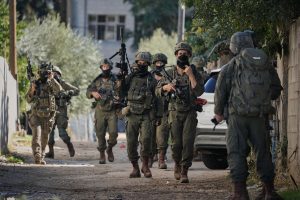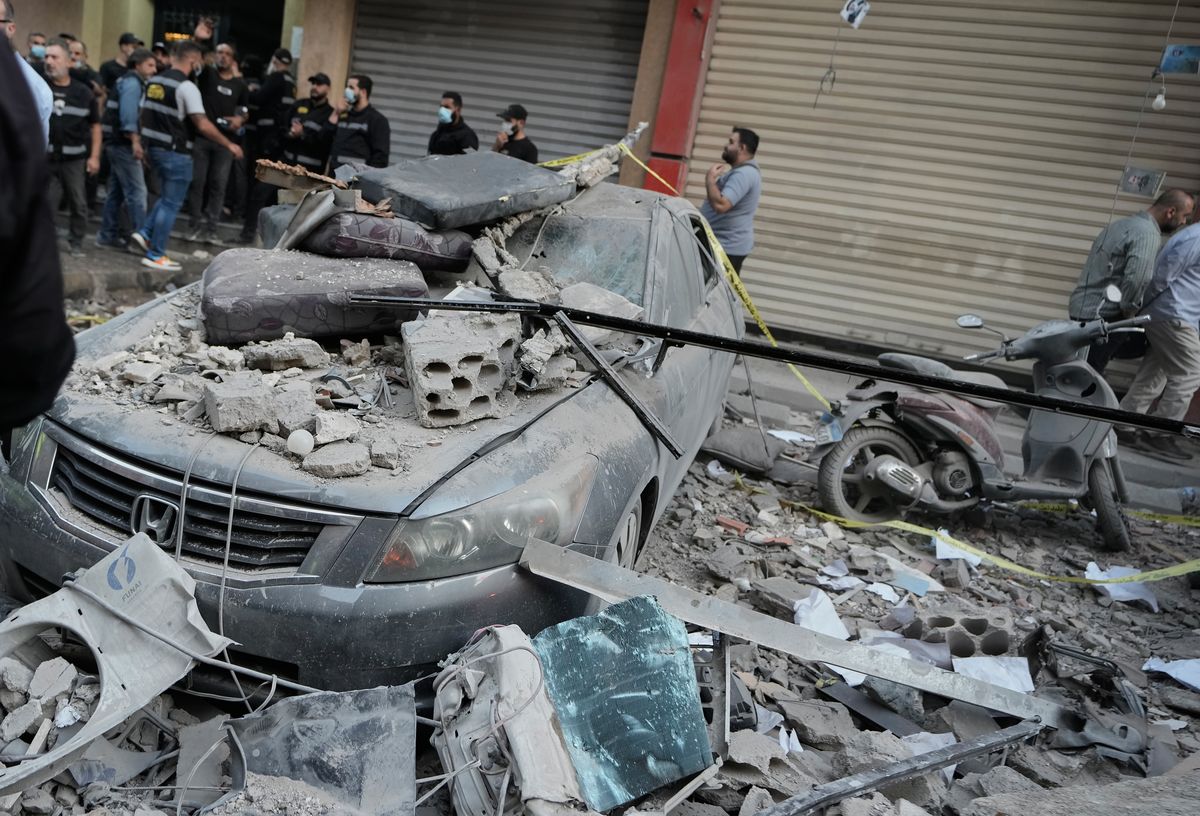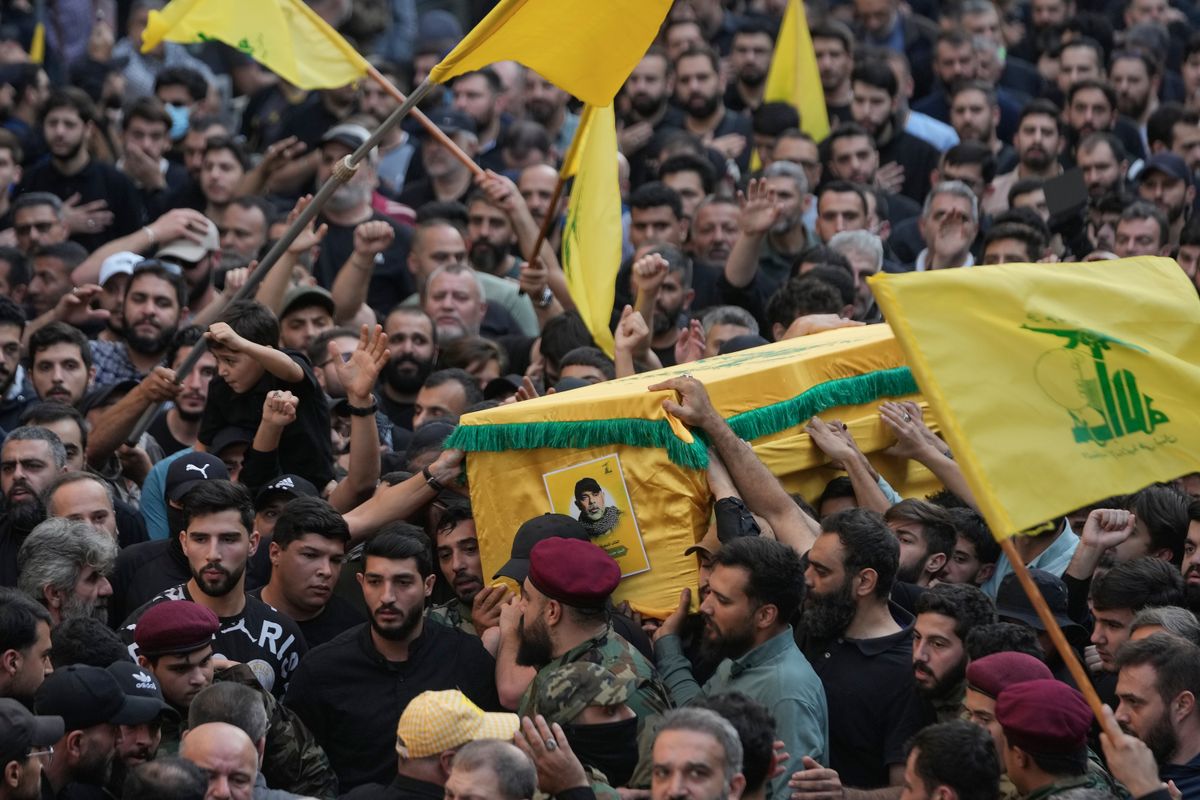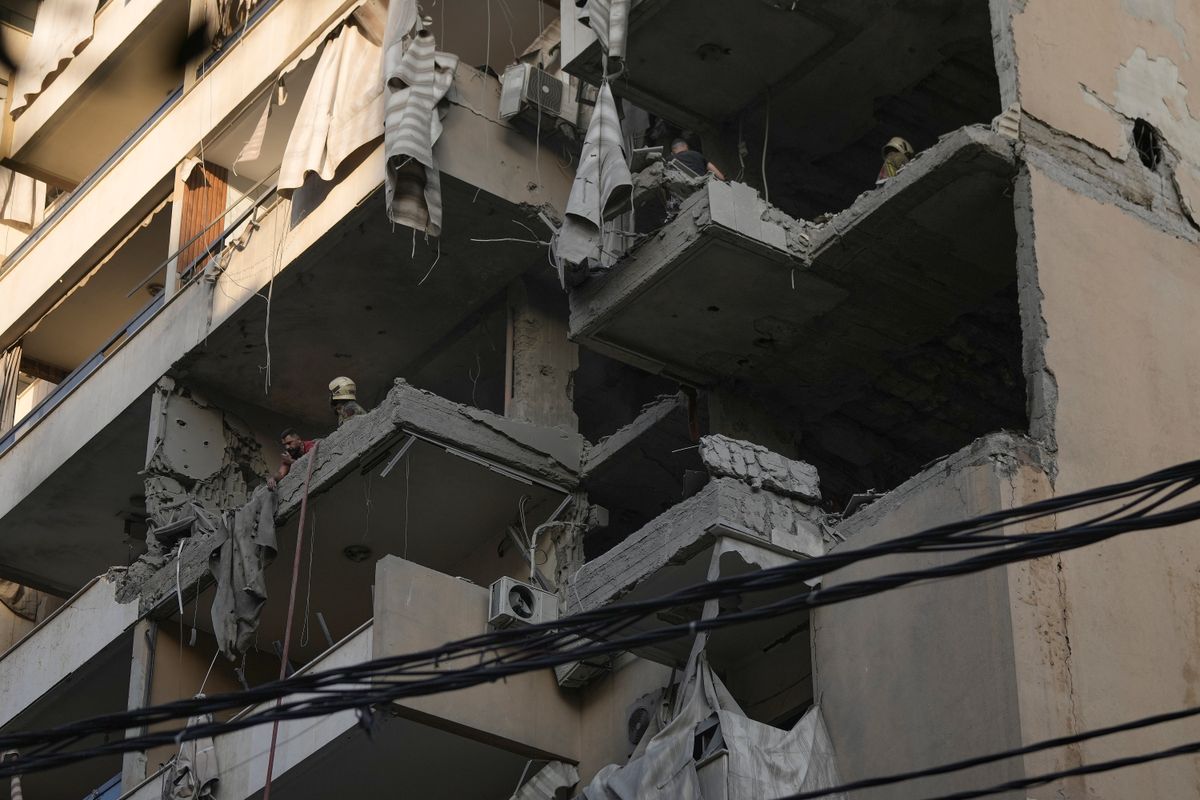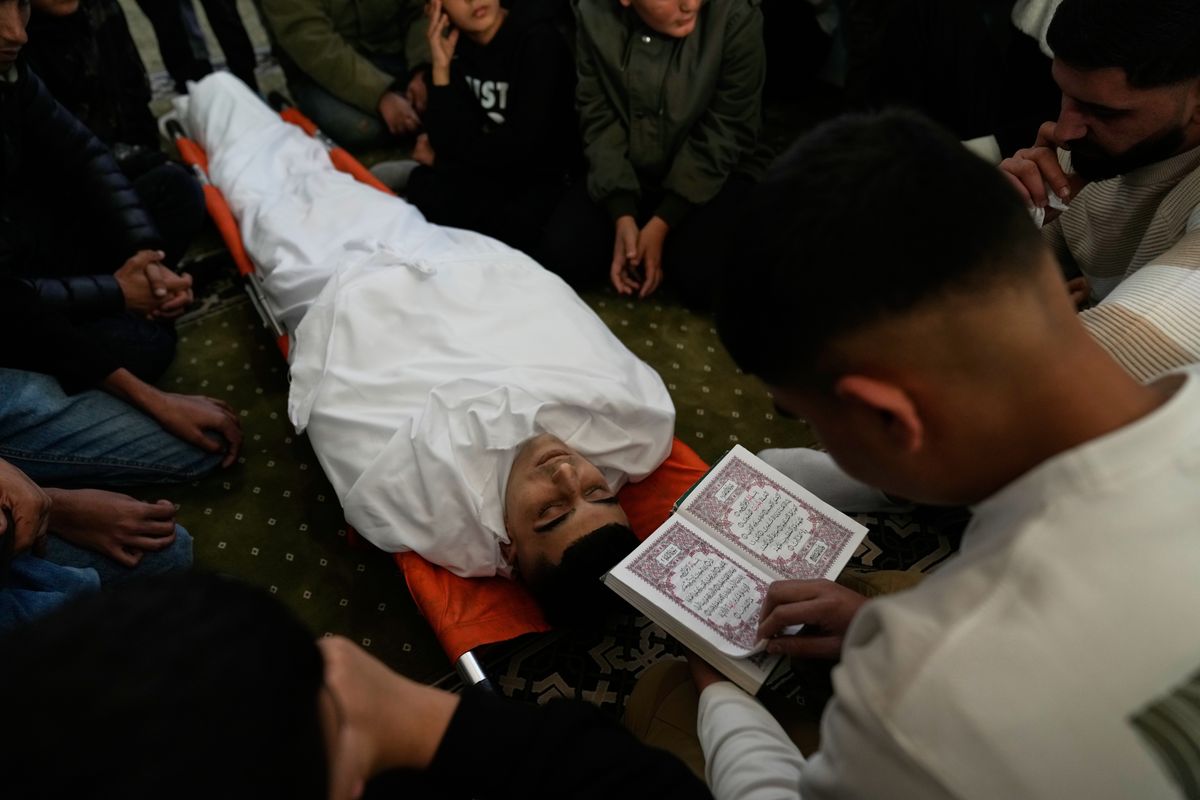BEIRUT (AP) — Lebanon’s prime minister criticized Hezbollah on Thursday for failing to disarm, saying that its refusal to do so is hurting the Lebanese people at a time when the country is trying to recover from the group’s war with Israel last year.
In new violence, Israel carried out another round of airstrikes on suspected Hezbollah sites in southern Lebanon.
Israel and Hezbollah reached a ceasefire a year ago, ending months of heavy fighting. But Israel continues to occupy parts of southern Lebanon, and has stepped up deadly airstrikes while accusing Hezbollah of trying to rebuild its arsenal.
At the same time, Israel has pushed forward on a number of other fronts, including a new offensive in the West Bank and continued firefights in Gaza. Ongoing conflicts in the region have fueled concerns that unrest could spill over and undermine the fragile truce in Gaza.
A Palestinian-American teenager held in Israeli detention for nine months was released on Thursday night. The 16-year-old emerged visibly thin and was embraced by his crying family.
Strikes on Lebanon ahead of the pope’s visit
Israel’s air force carried out another series of strikes in parts of southern Lebanon on Thursday. The military said it struck and dismantled Hezbollah infrastructure, including launch sites storing Hezbollah weapons.
Its strikes escalated earlier this week with a rare strike in Lebanon’s capital of Beirut, killing Hezbollah’s chief of staff.
The United Nations on Tuesday said Israel had killed at least 127 civilians, including children, in its strikes on Lebanon since the ceasefire came into effect last year.
On Thursday, Lebanese Prime Minister Nawaf Salam said Hezbollah’s arms have failed to deter Israeli airstrikes, protect the Lebanese people or even safeguard the lives of its own leaders.
“Hezbollah says its weapons are deterring an aggression. Deterrence means preventing the enemy from carrying out an aggression, but it (Israel) is attacking and the weapons are not deterring it,” Salam said in comments run by state-run National News Agency.
Salam’s rare criticism of the group comes as the United States and Israel have increasingly pressured Lebanon’s government to disarm the militant group.
The Israeli strikes come days before Pope Leo XIV is scheduled to visit the country, where he will meet the crisis-hit nation’s political and religious leaders. Although the pope will visit Beirut and other parts of the country, he will not go to south Lebanon, which suffered wide destruction during the 14-month Israel-Hezbollah war.
Escalation in the West Bank
In the northeastern West Bank region of Tubas, Israel’s military has detained at least 119 people in an offensive that began on Tuesday, according to a Palestinian advocacy group.
Abdullah al-Zaghari, spokesman for the Palestinian Prisoners’ Club, told The Associated Press that the authorities released 27 of those detained, and accused the military of severely beating a number of people.
The military did not immediately comment on reports of mass arrests or beatings, but has said the operation was a response to “attempts to establish terrorist strongholds and construction of terror infrastructures in the area.”
Tubas Gov. Ahmad Al-Asaad said Israel had carried out airstrikes with military helicopters, and that the region was essentially “cut off” by Israeli troops.
Israel launched a broad offensive in the West Bank following Hamas’ Oct. 7, 2023, attack that triggered the war in Gaza. It says it is cracking down on militants, though Palestinian health officials and human rights groups say dozens of uninvolved civilians have been harmed. On Nov. 19, Palestinian attackers stabbed an Israeli to death and wounded three more before being shot down by troops.
The latest operation comes amid a rising tide of Israeli settler violence in the West Bank.
Israeli leaders have played down the settler attacks as the work of a small minority. But Palestinians say the attacks are frequent, often in close proximity to Israeli troops, and the settlers are rarely punished.
American teen released from Israeli jail
Mohammed Ibrahim, an American teenager held in Israeli custody for nine months, was released Thursday evening and immediately checked into a hospital, his uncle told the AP.
Visibly thin, head shaven and still in a grey jumpsuit, Ibrahim wiped tears away as he was embraced by family members shortly after his release in videos taken by the family. His father, Zaher Ibrahim, kissed his son and began to cry.
“He’s skinny and pale, his eyes are sunken in and he still has signs of scabies,” said Zeyad Kadur, the uncle.
The teen was visiting family in the West Bank with his parents when he was arrested at his family’s home at night for allegedly throwing rocks at Israeli settlers in the West Bank, according to the Council on American-Islamic Relations and several members of Congress. In an affidavit, Mohammed said he only confessed to stone-throwing after he was threatened by interrogators with a beating.
His family and lawyers said he was held in poor conditions, suffered a scabies infection and lost weight in jail.
Israel’s military conducted regular arrest raids in the West Bank during the Israel-Hamas war, taking unprecedented numbers of Palestinians into prisons where inmates have reported poor treatment and conditions. Israel says the mass arrests are to root out militancy. But civilians and stone-throwers have been caught up in the raids — and Palestinian-Americans like Mohammed have been among them.
___
Janetsky and Frankel reported from Jerusalem.
By BASSEM MROUE, MEGAN JANETSKY and JULIA FRANKEL
Associated Press

